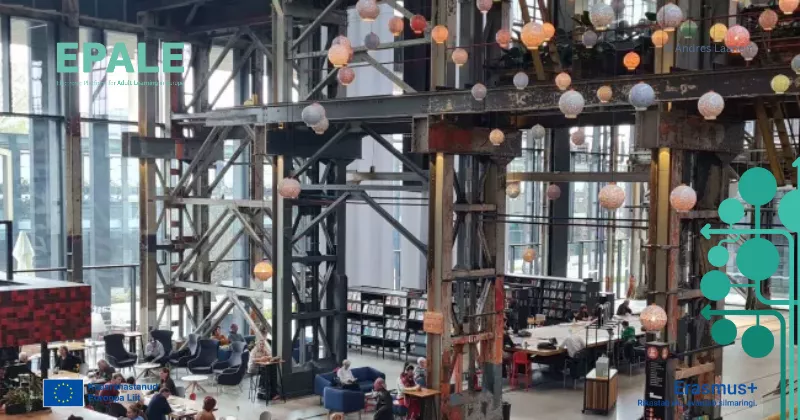Reflections of the Workshop on Inclusive Education
The distinction between people begins when they are young, depending on the gender, income, ethnic background, language or religions they speak, disability or other reasons. This distinction unfortunately prevents every individual from having equal opportunities for education and participation in social and cultural activities. However, there is an approach that aims to provide equal opportunities for every individual by preventing this situation: inclusive education.
We have held a workshop on inclusive education with adult educators working in the Eastern Anatolia Region of Turkey. I was the coordinator of the workshop. In this blog post, I will share my impressions of the workshop.
The content of the workshop included the fundamentals of inclusive education, innovative practices, how to identify the needs of disadvantaged groups, how to prepare curricula for the identified needs, the characteristics of individuals with special needs and coping techniques with difficult situations.

It was observed that adult educators did not have in-depth knowledge about inclusive education and they were open to all kinds of education to be provided to them. The participants were most active in the needs determination and program preparation activities. In these activities, the participants were asked to raise awareness about the needs of vulnerable / vulnerable groups in their learning environments. First of all, the participants were divided into groups and asked to design a hat with the materials given to them. After the hat design process was completed, an output was prepared by the executive team, each containing a picture of a vulnerable / vulnerable group (immigrant, violent individual, ex-prisoner, etc.) and was asked to place the picture in the hats they designed.
After the groups placed the picture of the related group on the hat they designed, one person from each group wore this hat, appeared in front of the community and empathized with the group about what they might need in the learning environment. Afterwards, the participants empathized with vulnerable / vulnerable groups and made inferences about their needs in learning environments. At this point, an activity was carried out on what kind of curriculum should be carried out in line with the needs put forward. In this activity, individuals wearing hats representing each vulnerable / vulnerable group were directed to different groups and were asked to think and list what they would do when such an individual came to their institution. In doing so, individuals in the group were assigned a role (institution manager, teacher, etc.). At this point, when they encounter such a group of individuals whose roles are identified, they should think about what kind of programs they can open within their institutions, what they can do for their teaching, how they can create learning environments, what methods they can apply and what these individuals can do for other individuals (friends, parents, etc.) around them. and they were asked to prepare a plan. At the end of the event, each group prepared a draft plan for a separate vulnerable group, and the main lines of these plans were explained to one individual by the other groups.
After these activities, the workshop ended with presentations.
At the end of the workshop, I made some conclusions based on both my personal observations and the opinions of the participants. Accordingly, adult educators, like other learners, get more efficiency than activity-based trainings. In these activities, they both participate more actively and socially blend with the group members. Another point I have observed is that adult educators are confronted with individuals from disadvantaged groups in some way and they are unconscious about how to behave. In particular, they do not have practical knowledge to tackle difficult situations.
All of these observations indicate that adult educators need more training and especially practice in the education of disadvantaged groups.




